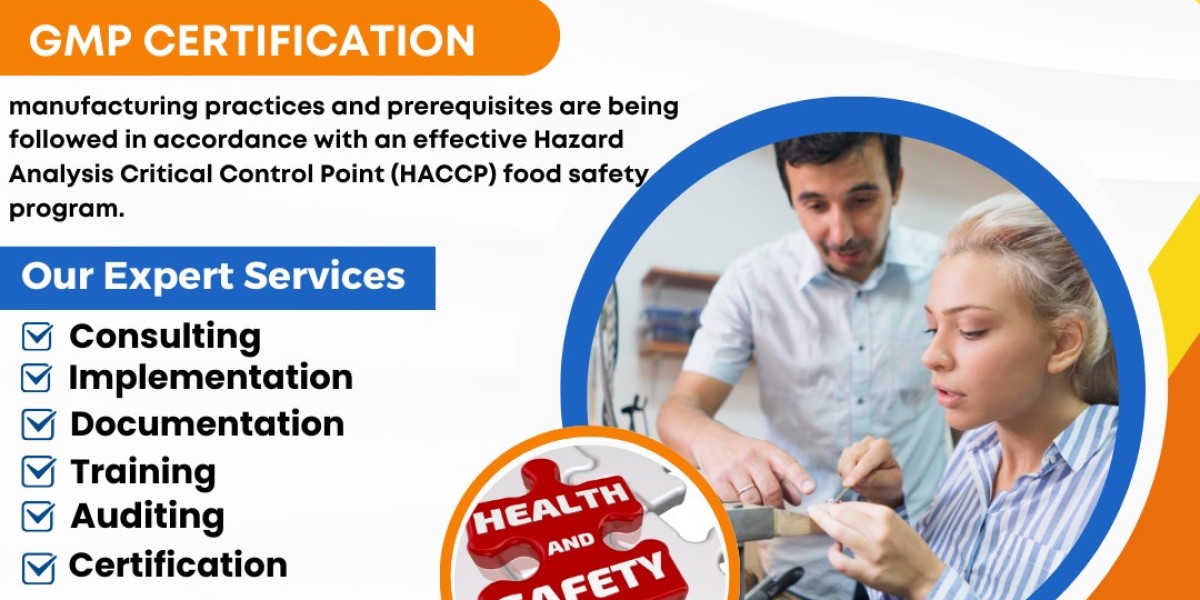What is GMP?
GMP Certification in USA are a set of regulations and guidelines enforced by the U.S. Food and Drug Administration (FDA) that govern the production, testing, and quality assurance of drugs, food, and other health-related products. GMP ensures products are consistently produced and controlled according to quality standards, minimizing risks like contamination, mix-ups, and errors.
GMP is part of a broader quality system known globally as cGMP, where “c” stands for “current,” indicating that manufacturers must use up-to-date technologies and systems.
Why is GMP Certification Important?
Although the FDA doesn’t issue official “certifications,” many companies pursue GMP certification through third-party auditors to:
Prove regulatory compliance to U.S. and international clients
Gain consumer confidence
Expand into new markets (especially exports)
Prevent costly recalls or product rejections
Attract new partners, investors, or clients
Improve internal processes and product consistency
Whether you operate a dietary supplement company, pharmaceutical plant, cosmetic manufacturing unit, or food packaging facility, GMP certification can be a significant asset.
Who Needs GMP Certification?
Any organization that manufactures, packages, tests, stores, or distributes products related to human health may require GMP compliance. This includes:
Pharmaceutical companies
Dietary supplement manufacturers
Food and beverage producers
Cosmetic manufacturers
Medical device companies
Veterinary product companies
Even companies that only handle packaging, labeling, or distribution must follow certain GMP principles.
GMP vs. FDA Compliance
There is a common misconception that GMP certification is equivalent to FDA approval. In reality:
The FDA enforces GMP regulations, conducting surprise inspections and audits to ensure compliance.
GMP certification is often issued by independent third-party organizations that audit your facility against FDA regulations or globally recognized standards such as ISO 22716 (for cosmetics) or 21 CFR Parts 210 & 211 (for pharmaceuticals).
In short, GMP certification does not replace FDA inspections—it complements them.
How to Get GMP Certified in the USA
Here are the basic steps to earn GMP Services in USA through a third-party certification body:
Understand the applicable regulations
Determine which GMP standards apply to your business. For example:21 CFR Part 111 for dietary supplements
21 CFR Part 210/211 for drugs
21 CFR Part 820 for medical devices
ISO 22716 for cosmetics
Conduct a GAP Analysis
Perform an internal audit to assess your current processes against the applicable GMP standards. Identify weaknesses and non-conformities.Implement GMP policies and SOPs
Develop and document your standard operating procedures (SOPs), training programs, equipment maintenance plans, and quality control protocols.Train your staff
Every employee must understand GMP principles and follow them consistently. GMP training should be part of onboarding and ongoing education.Schedule a third-party audit
Hire a recognized GMP certification body to perform an on-site inspection and documentation review.Address non-conformities
If the auditor finds gaps, correct them and submit evidence of corrective actions.Receive your certification
Once you pass the audit, you’ll receive a GMP certificate valid for a specific period (usually 1–3 years).
Reputable GMP Certification Bodies in the USA
Some well-known organizations that offer GMP certification audits include:
NSF International
SGS
UL Solutions
Eurofins
Intertek
Perry Johnson Registrars (PJR)
Make sure the certification body you choose is experienced in your industry and recognized by your customers or regulatory authorities.
Final Thoughts
In a highly regulated and quality-driven market, GMP Consultants in USA is more than just a badge—it's a business necessity. Whether you're aiming to improve your internal quality systems, gain a competitive edge, or expand globally, following GMP guidelines and earning certification ensures your products meet the highest standards of safety and quality.
By prioritizing GMP compliance, your company not only protects consumers but also secures its reputation, profitability, and future growth.







